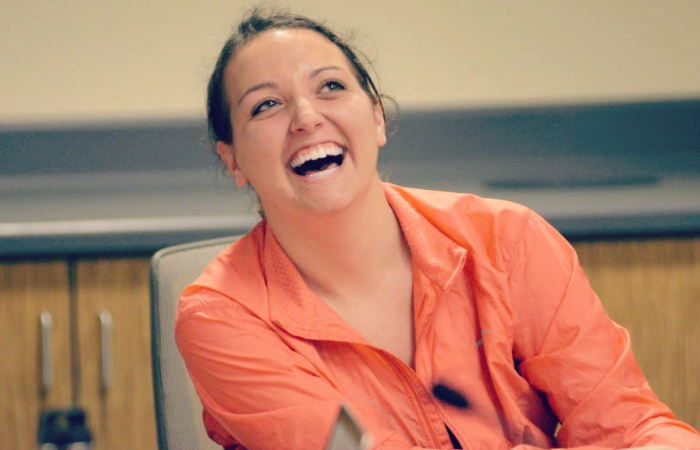The Challenge: We have theories about what will make us happy, but they don’t always seem to work.
The Science: Research suggests that the happiness theories we live by are plain wrong.
The Solution: Follow these 7 science-based tips and SERIOUSLY improve your well-being!
“The happiest people don’t have the best of everything, but they make the best of everything they have.”
Did you know that most of us live our lives according to outdated (or even false!) happiness theories? In this post, you’ll learn how to make small choices that will help you make the best of everything you have and experience a big boost in your health and happiness! I’ve summarized some of the best predictors of happiness and tied each point to an in-depth article I’ve written on the subject so you can dive deeper into anyone you choose.
1. Shake Off Self-Criticism & Embrace Self-Compassion
Outdated Theory: Self-criticism and being hard on ourselves is a great way to get things done and be successful and strong.
What the Research Really Says: No way! A number of studies now show that self-criticism weakens us while self-compassion provides us with the skills we need for resilience, happiness, and productivity (see this in-depth post on self-compassion).
2. Ditch the Complaints in Favor of Gratitude
Outdated Theory: It’s good to be realistic, which means realizing that life sucks.
What the Research Really Says: Nope!
– An analysis by Shelley Gable and Jonathan Haidt suggests that we actually have three times more positive experiences than negative ones. What keeps us from fully capitalizing on all the good in our lives, making us a slave to the bad? Our brain tends to focus on the negative and forget the positive. Gratitude is the perfect antidote, and research shows it can be harnessed for greater health and well-being (read up on the latest gratitude research in this post).
– We also get caught up in an eternal chase for what we think will bring us happiness, but that is nothing but a vicious cycle of desire (check out research on the fire of desire here). In this case, again, our key to freedom and well-being is gratitude.
3. Replace Too Much Seriousness with Some Serious Play
Outdated Theory: Adults need to be serious. Play and idle fun is for children and pets.
What the Research Really Says: Wrong Again! As adults, we often fail to remember to play, but research shows it boosts our creativity, health, and well-being (read up on the science of play in this post).
4. Balance Stress with Breathing
Outdated Theory: Yeah, yeah, “take a deep breath” and all that jazz… There’s no reason to pay attention to the breath. We all know how to breathe. It happens on its own. Breathing differently won’t make a difference.
What the Research Really Says: Wrong! Research shows that your breath is intricately tied to your well-being and the state of your mind and that it holds the key to greater self-control and resilience (see here and here).
5. Balance Self-Focus with Compassion for Others
Outdated Theory: Everyone’s looking out for themselves. I need to focus on myself to get ahead in life.
What the Research Really Says: Wrong Again!
– Self-focus is actually associated with anxiety and depression.
– We aren’t naturally selfish. Actually, our natural instinct is to act fairly. Compassion appears to be an evolutionarily adaptive trait that has tremendous health and well-being benefits (see here)
– Compassion will benefit your relationships, including your romantic relationships (see here)
– In fact, compassion is the best-kept secret to happiness (see here)
– It’s good for your business (see here)- Both men and women are wired for it (see here)
6. Balance Solitude with Connection
Outdated Theory: You’ve got to make it on your own, stand out, stand above the crowd, differentiate yourself, and that, ultimately, is a lonely state of affairs.
What the Research Really Says:
– Our brains are wired for connection to others (see here).
– We thrive when we connect (see here).
– Loneliness can be balanced with connection. You can even learn to be together and connected even when alone (see here).
– Connection helps us overcome stress (see here).
– If you learn how to use technology and social media wisely (see here).
7. Balance Activity with Doing Nothing
Outdated Theory: I have to be productive every minute of the day to get things done and stay afloat.
What the Research Really Says: Wrong! You’ll get more done by doing more of nothing!
– Research shows it’s good for you and your productivity (see here)
– A great way to get started is meditation (see here for 20 scientific reasons to start today)
– Turning your attention inward is a secret to well-being that the brain is built for (see here for the brain’s ability to look within).



